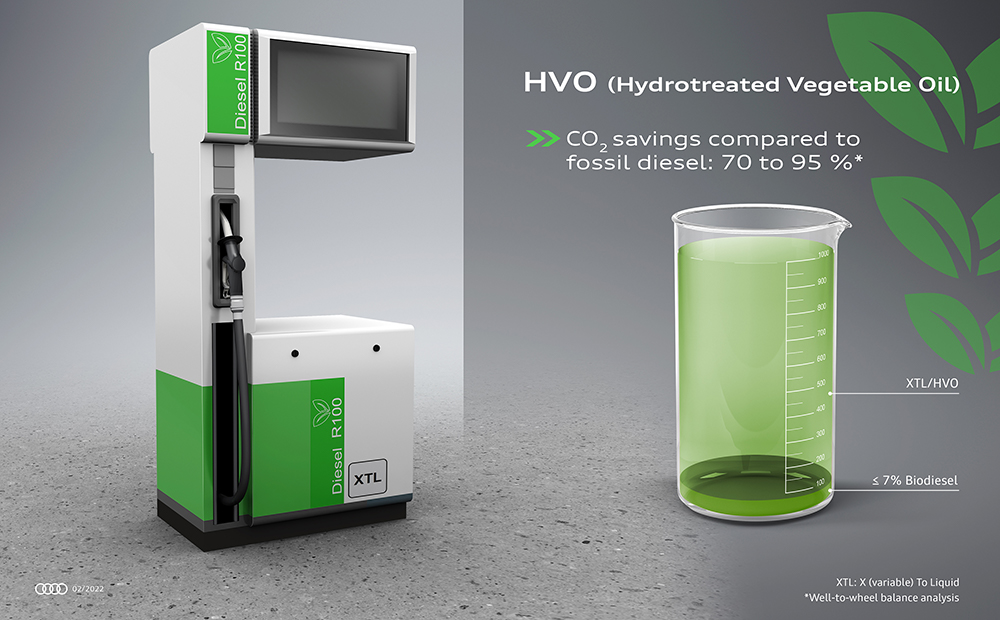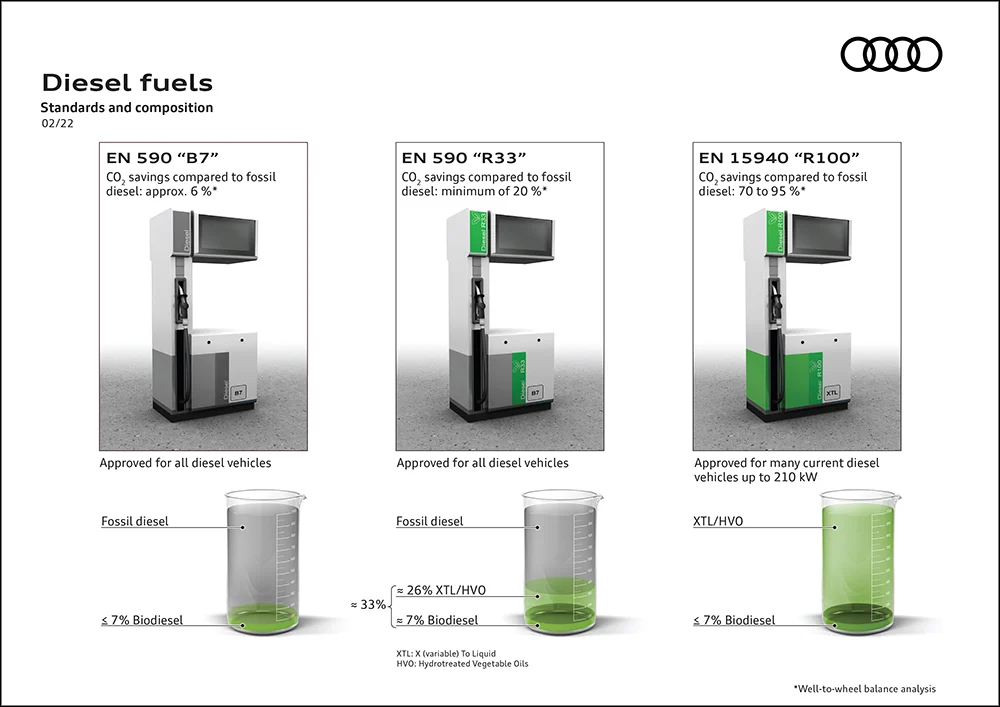
In the quest to make the car industry greener than it currently is, manufacturers are spending billions of dollars in developing newer technologies that will do just that. A good chunk of the market is shifting toward battery-electric and hybrid-electric powertrains, while you have the left-field solutions of hydrogen-combustion and synthetic fuels to try to preserve the soul of internal combustion.
Audi is looking into diesels to make things greener.
If having “diesel” and “greener” in the same sentence sounds like an oxymoron, it usually is. Diesel engines can be polluting if pushed beyond certain boundaries, but they have a significant advantage over their gasoline counterparts: They can burn oil.
Rudolf Diesel powered his first engines with peanut oil, but we slowly shifted to petroleum-based oils derived from squeezing dinosaurs for millions of years deep underground. While there have been a few vehicle owners experimenting with mixing used cooking oil with various additives to run their diesel cars, it hasn’t really seen much widespread use given the potential issues an uncertified fuel can cause as well as the labor involved in such conversions. Certain additives, processes, and equipment need to be employed in order to get the thick, viscous oil into a form that engines can readily use. This problem is only complicated by colder temperatures and tighter tolerances found in newer vehicles.
Scientists and engineers have found a way to convert these animal and vegetable oils into Hydrotreated Vegetable Oil (HVO), a form much more suitable for running in vehicles. The oils are exposed to hydrogen under high temperatures and pressures to first convert triglycerides into fatty acids under hydrogenation. These fatty acid chains are then cleaned up, isolated and chopped up into smaller segments using hydrogen to allow for shorter hydrocarbon molecules that can flow smoother and better emulate what comes out of the fuel pumps.

HVO is considered a renewable fuel, as it is derived not only from plants and animals but also from waste oils used in cooking. The processed oil may actually burn better in engines given that its cetane rating is around 30% higher than that of diesel, too. It also tends to burn greener with a 70% to 90% reduction in greenhouse gas emissions compared to that of diesel, the variance depending on where the oil is sourced from. It’s nowhere near as green as zero-emission vehicles, but it’s a great alternative to tide us over while we’re working on the future.
What does this have to do with Audi?
The V6-powered A4, A5, A6, A7, A8, Q7 and Q8 series manufactured from mid-February 2022 (with a power output of 282hp); the Q5 beginning March; the A6 Allroad (with 241hp) beginning summer; the European four-cylinder A3, Q2, and Q3 series; the A4, A5, A6, A7 and Q5 series running the R4 TDI engines in Denmark, Italy and Sweden; and the Volkswagen Touareg (in 228hp and 282hp forms) have all been certified to run HVO fuels. Picking sustainable diesel alternatives for these vehicles would be as easy as choosing which pump to fill up from.
Unfortunately, HVO has yet to reach our shores. With 600 stations already scattered throughout Europe, only time will tell when the oil used to fry your chicken will soon run the same car you use to go through the drive-through window. Full circle, for sure.


0 Comments